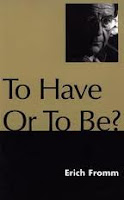There has been quite a lot of criticism of David Lynch's INLAND EMPIRE so I felt intimidated approaching it despite a generally favorable penchant for this director's work. My Lynch initiation happened with the sublimely mysterious Blue Velvet, followed by the entertaining and surreal, at times downright creepy series Twin Peaks (the first - and most likely only - time I saw cherry pie combined with Zen Buddhism on television).
Wild at Heart disappointed and left me cold the first time around but I saw its merits and comedic value after repeated viewings. Lost Highway I did not care for much, and although overall praised I did not think Mulholland Drive to be that outstanding. Good yes, but for Lynch it seemed rather "average" (though the silencio scene does still creep me out). Heck, I even enjoyed the generally panned Dune, but I simply adored the straight-edged road movie Straight Story told with a heart.
Normally, I would have simply overlooked the negative reviews had it not been for the unpleasant experience of watching Eraserhead, a film that was praised by most but I thought that it was Lynch just being weird for no clear rhyme or reason. As one critic had said, all the characters in Eraserhead seemed to have undergone lobotomy treatment; what was fodder for amusement felt silly or rather unfunny in this case. (But again I must give it another chance and perhaps I did not get it the first time around.)
So when critics compared INLAND EMPIRE with my nightmarish experience of confusion and boredom of Eraserhead, it was enough to keep me at bay (plus its almost three-hour running time and the fact that Lynch had apparently improvised as he went along added only fuel to my existing doubt). It took me more than seven years (a symbolically appropriate number in itself) to approach this underrated gem of a movie. And just like previously panned movies like Goya's Ghosts or The Soloist, many critics plainly got it wrong. (Though I must admit that a lot of them got it right too and, in fact, they praised this wonderful movie for its various merits.)
But back to the movie itself. The movie is not without its flaws (I still think it is a little too long and errant for my taste) but the same flaws are also its strengths. By rambling through scenes, Lynch is immersing us deeper and deeper into the psyche of its main character(s), while holding and balancing us gently but firmly in its narrative web. It may lack polish (pun intended) and a coherent script (!), but none of this takes away from the unique experience of this film; it rather adds an irresistible nightmarish aura to the movie.
Some have commented that the movie is incomprehensible and plotless. The latter is true as the story is not linear nor does it have a discernible sequence of events or actions (all we are told is that actions have consequences). A movie without a plot is not a bad thing per se, at least nobody could claim that it has any plot holes since there is no plot to begin with.
Hence I shall do away with the elements of the plot, and at the same time reduce the chances of spoilers by simply looking at some of the many themes that this movie covers or deals with. My main focus here will be on the medium of film and its spiritual or emotional repercussions on the viewer.
First off, there is the quest for identity or identities. This is not only about identity in our lifetime, but also across time and perhaps even involving past lives. Yet it is also about “losing one's identity,” that is to forgo what one sees and defines on a superficial level (name, looks, status) and to dig deeper into the core of who one really is. Equally, it is about losing one's identity - or sanity for that matter - in order to immerse oneself in a created or fictional identity, the character one is supposed to “play.”
The movie also sheds light on the barrier between fiction and reality. In this case, the film they are shooting within the film is related to “real” events, that is real in the sense that fiction becomes meshed up and embedded with reality or that the imagination may become as real as the real thing. As the movie is cursed from its onset, any repercussions of this fictional entity will have consequences upon the real lives of the actors, as Nikki finds out with Sue.
But it is not only that. The life of the actress Nikki becomes altered because of and through her role and interpretation of the character Sue. She not only embodies her, but also takes on, Christ-like, her problems, sins, or suffering herself. This is why I think that the movie is a religious experience involving a sense of atonement.
After Nikki goes through hell, she redeems both herself and her character, who in this case turns out to be a real person watching and following closely Nikki's performance and actions. Although Nikki is acting, she is also improvising and redirecting her own actions as can be seen in the crucial scene of the movie theater towards the end when time stops and becomes the present. By overcoming evil, Nikki paves the way for Sue to become purified, and Sue feels overwhelming catharsis in the process as most of the time she has tears of relief streaming down her face.
If you have no clue what I am talking about, do not worry because I will try to put it in more abstract terms. The movie makes also a statement on the viewing experience. It is a blend of Rear Window and Vertigo. We become the ones who are watching, but this experience changes us consciously as well as subconsciously.
Similar to having this actress reli(e)ve her demons to another person, we are getting rid of our own in the viewing process. We become, well temporarily and symbolically at least, purified and released from the grip-hold of evil. It is a cathartic experience that we can grow from if we open ourselves to this journey.
Although these themes have existed in most of Lynch's movies, they have never been as clear as this one, which is an ironic statement I know this being his most enigmatic work. But for me there was a feeling of closure, which many viewers and critics must have missed out on, not a logical closure of loose ends, but an emotional and subconscious one.
The final song and dance number, so typically atypical for Lynch, alongside the group of girls with bad attitude who are reminiscent of a Tarantino film on acid, combine to culminate in a spiritual release. The penultimate song is emotionally uplifting and liberating, while the final dance is spiritually entrancing and enhancing. This movie then turns from a nightmare of a woman in trouble into a prayer for good while seeking and beseeching the guidance of the Lord.






